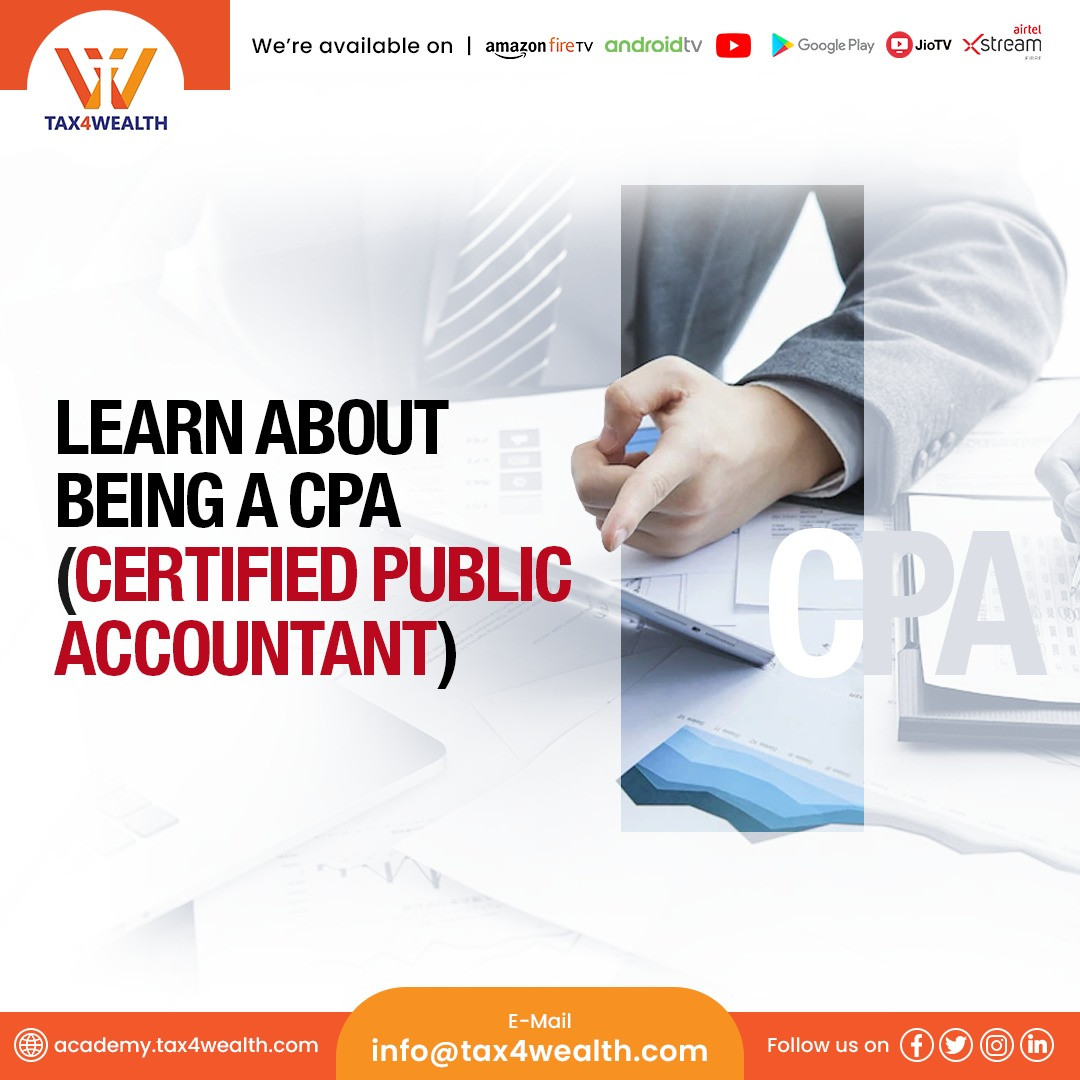
Learn About Being a CPA (Certified Public Accountant)
A Certified Public Accountant (CPA) is a professional accountant who has met the requirements set by the state board of accountancy to become licensed in the state in which they practice. CPAs are highly trained professionals who provide a wide range of accounting and financial services to businesses and individuals. Learn about being a CPA (Certified Public Accountant). To become a CPA, you need to meet certain educational and experience requirements, pass the Uniform CPA Exam, and adhere to strict ethical standards.
Here are the steps to becoming a CPA:
- Education: To become a CPA, you must have a bachelor's degree from an accredited college or university, which includes at least 150 semester hours of college coursework. You must also complete specific accounting and business courses as part of your degree program.
- Exam: Once you have completed the educational requirements, you need to pass the Uniform CPA Exam, which is a four-part exam that covers auditing and attestation, business environment and concepts, financial accounting and reporting, and regulation. Each part of the exam must be passed with a minimum score of 75.
- Experience: To become a licensed CPA, you need to gain a certain amount of accounting experience, which varies by state. This typically involves working for a certain number of hours under the supervision of a licensed CPA.
- Ethics: As a CPA, you must adhere to strict ethical standards set forth by the state board of accountancy. These standards include maintaining confidentiality, avoiding conflicts of interest, and providing accurate and complete financial information.
Once you have met these requirements, you can become a licensed CPA and work in a variety of accounting and financial roles. CPAs can work in public accounting firms, private industry, government agencies, or as consultants. Some common job titles for CPAs include auditor, tax accountant, financial analyst, and controller.
In addition to providing accounting and financial services, CPAs also play an important role in helping businesses and individuals make informed financial decisions. They may provide advice on tax planning, financial reporting, budgeting, and risk management, among other areas.
Also read; Chartered Accountant vs. Certified Public Accountant: What is The Difference
What does a CPA do?
Here are some of the typical tasks and responsibilities of a CPA:
- Financial reporting: CPAs prepare financial statements, including balance sheets, income statements, and cash flow statements, for clients.
- Tax preparation and planning: CPAs assist clients in preparing tax returns and developing tax planning strategies to minimize tax liabilities.
- Audit and assurance: CPAs perform audits, reviews, and compilations of financial statements to ensure compliance with accounting standards and regulations.
- Consulting: CPAs provide business advice and consulting services to clients, including financial planning, mergers and acquisitions, and risk management.
- Forensic accounting: CPAs investigate financial crimes, such as embezzlement or fraud, and provide expert witness testimony in court.
- Management accounting: CPAs provide internal accounting and financial management services for businesses, including budgeting, forecasting, and performance analysis.
Conclusion:
Becoming a CPA requires a significant amount of education, training, and experience, but it can lead to a rewarding and fulfilling career in the accounting and finance industry.
Overall, CPAs use their expertise in accounting and finance to help clients make informed financial decisions and ensure compliance with relevant regulations and standards.
Frequently Asked Questions: CPA (Certified Public Accountant):
- What is a CPA?
A CPA is a licensed professional who provides a range of financial and accounting services to individuals, businesses, and organizations.
- What are the education requirements to become a CPA?
Most states require a minimum of a bachelor's degree or higher from an accredited college or university. Additionally, candidates must typically complete a certain number of accounting courses and have a minimum number of credit hours.
- What is the CPA exam?
The CPA exam is a comprehensive exam that tests candidates' knowledge of accounting and related subjects. It consists of four sections: Auditing and Attestation, Business Environment and Concepts, Financial Accounting and Reporting, and Regulation.
- How long does it take to become a CPA?
The time it takes to become a CPA varies depending on several factors, including the state you live in, your educational background, and the amount of experience you have. Generally, it can take between one to three years to complete the requirements for the CPA designation.
- What are the career opportunities for CPAs?
CPAs may work in a variety of industries, including public accounting, corporate accounting, government accounting, and non-profit accounting. Career opportunities may include roles such as auditor, tax accountant, financial analyst, or CFO.
- Should I take a US CPA rather than an Indian CPA?
No, a US CPA is complimentary to the Indian CA and is looked after by American corporations with operations in India.
Also read; How to Become a CA: Courses After 12th, Scope, Career Opportunities, Salary 2023
- How many marks do I need to get to pass the CPA exam?
A minimum score of 75 is required to pass a CPA Exam segment. The scores are presented on a scale of 0 to 99.
- Where are CPA tests held in India?
The CPA test is given in eight cities in India: Ahmedabad, Bangalore, Calcutta, Chennai, Hyderabad, Mumbai, New Delhi, and Trivandrum.
- When can I register for the CPA exam?
Enrollment for the CPA test is open all year; you can take the exam at any time.
- Does the CPA Exam have a time limit?
You must pass all four portions of the CPA test within 18 months.
For more info, Visit us at: https://academy.tax4wealth.com/
No comments yet, Be the first to comment.













